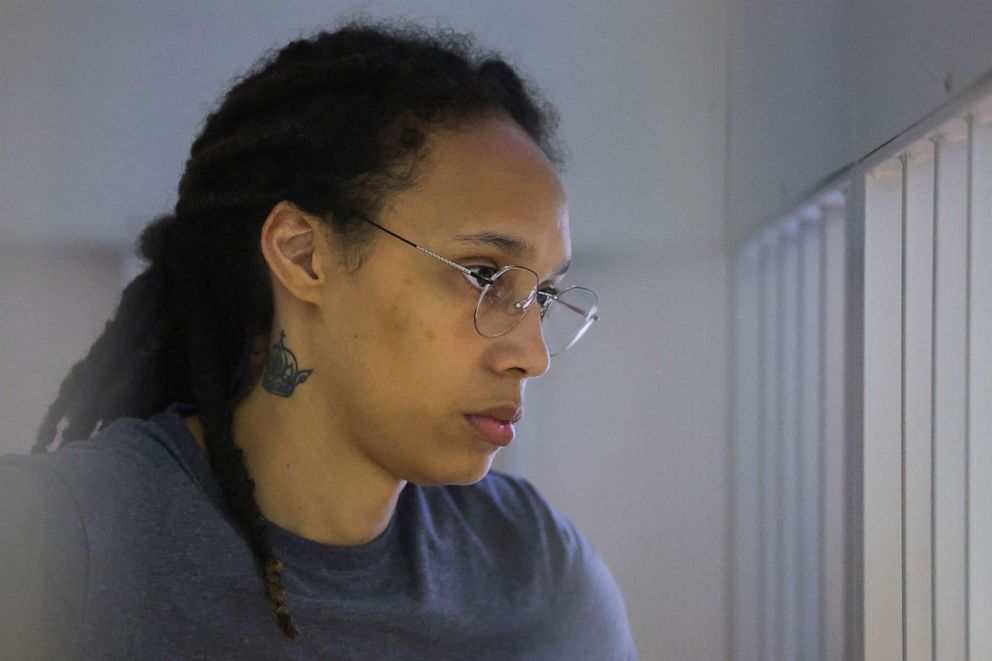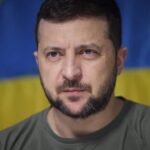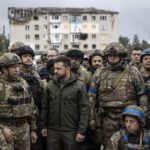As a onetime ambassador to the U.N. and an international hostage negotiator, Bill Richardson has often been on the front lines of American diplomacy. But after his high-profile trip to Russia amid efforts to secure the release of WNBA star Brittney Griner and former Marine Paul Whelan, members of the Biden administration are now urging Richardson to take a back seat.
“Our message is that private citizens should not be in Moscow at all right now and that private citizens cannot negotiate on behalf of the United States government,” National Security Council spokesperson John Kirby said on Wednesday.
But Richardson, a former New Mexico governor and energy secretary who now heads up an organization aimed at freeing Americans considered to be wrongfully held abroad, is not exactly an average citizen. When his plans to travel to Russia were first reported in July, Kirby said U.S. officials were in “constant communication” with him.
Richardson, for his part, told ABC News in August that he was “optimistic” about both Griner and Whelan, calling himself a “catalyst”: “I’ve been talking to the Russians. I talked to the White House.”
But the State Department’s receptiveness to help from outside the administration has chilled in recent weeks. Spokesperson Ned Price said Wednesday that anything other than government-to-government communication could be counterproductive.
“Our concern is that anything other than negotiating further through the established channel is likely to hinder the efforts that we have undertaken to see the release of Paul Whelan and Brittney Griner,” he said.
However, when Richardson first became involved in Griner’s case at the behest of her family in May, Price struck a different chord.
“We welcome all of those efforts that are coordinated closely with us that might help to seek the safe release of any American who’s unjustly detained around the world,” he said then.
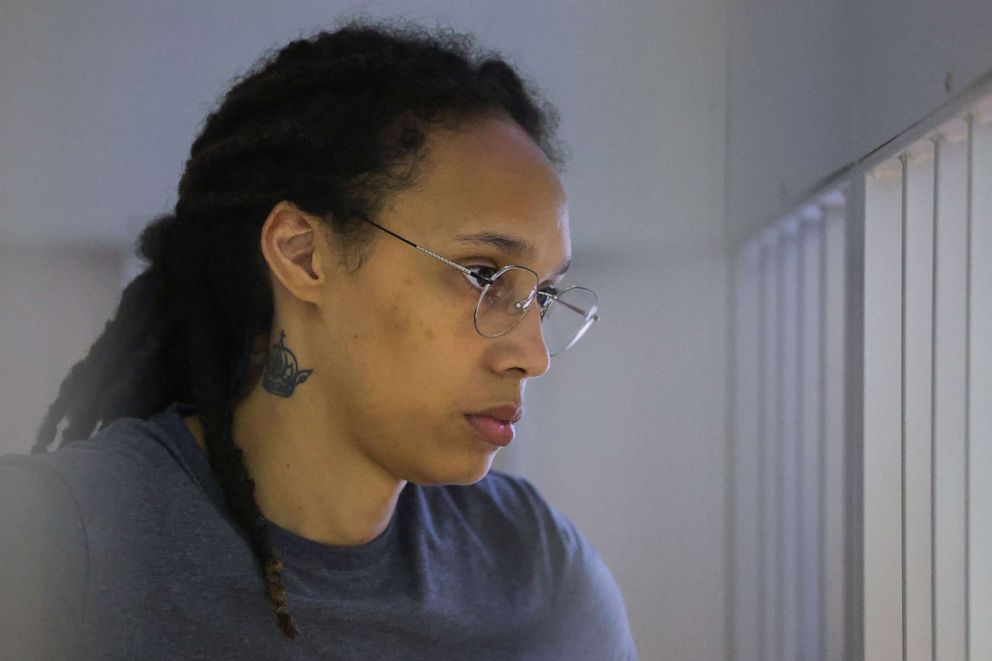
WNBA basketball player Brittney Griner, who was detained at Moscow’s Sheremetyevo airport and later charged with illegal possession of cannabis, waits for the verdict inside a defendants’ cage during a hearing in Khimki outside Moscow, Aug. 4, 2022.
POOL/AFP via Getty Images
Asked about the apparent shift, Price denied there had been a change in the government’s approach, saying the channel through which the Kremlin and Washington are currently communicating was established back in 2021 when President Joe Biden and Russian President Vladimir Putin met in Geneva.
It’s unclear if the State Department was informed of Richardson’s latest travel plans in advance, but Price said the trip was not coordinated through the U.S. embassy in Moscow. ABC News independently confirmed Richardson’s visit to Russia and reached out to the Richardson Center for Global Engagement, but a spokesperson declined to comment or answer questions.
“Of course, families are perfectly free to engage in to consult with outside voices, with outside entities,” Price said Wednesday. “But again, we want to make sure that any outside effort is fully and transparently coordinated with us and, in this case, we believe that any efforts that fall outside of that officially designated channel have the potential to complicate what is already an extraordinarily complicated challenge.”
The shifting tone from members of the administration comes as its push to free Griner and Whelan plods along at a slow — but not atypical — pace.
In late July, Secretary of State Antony Blinken took the rare step of announcing that the U.S. had put forth what he called a “substantial proposal” aimed at securing the release of both prisoners. Sources later confirmed it was a proposal for a prisoner swap involving so-called “merchant of death” Viktor Bout, a convicted arms trafficker who is currently serving out a 25-year sentence in an Illinois penitentiary.
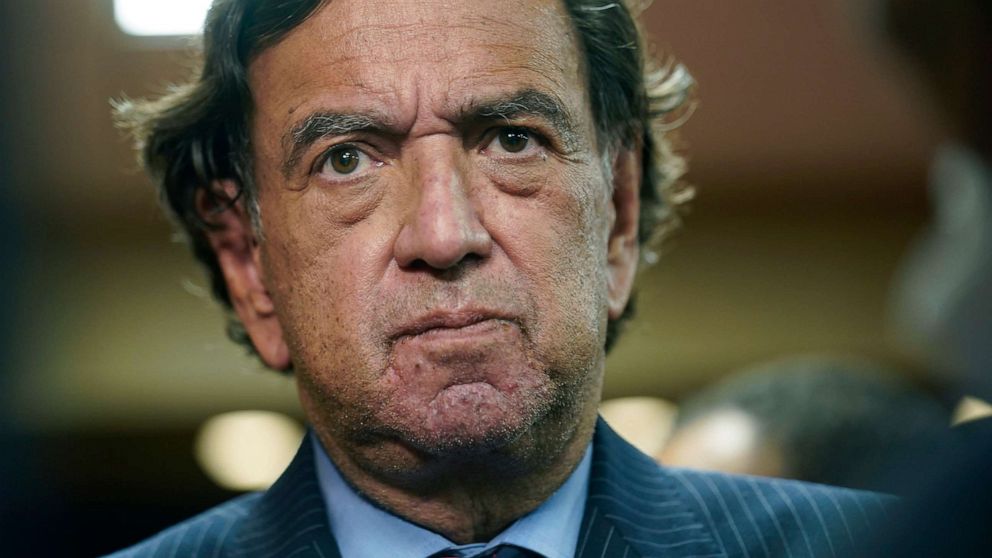
Former diplomat Bill Richardson speaks to reporters after a news conference in New York, Nov. 16, 2021.
Seth Wenig/AP, FILE
Although officials within the department say direct engagement between the U.S. and Russia has continued on a regular basis since then, there is scant evidence that an agreement is any closer. Some, including Richardson, say they believe Moscow will require parity for an exchange, giving the White House the difficult task of identifying another prisoner that is tolerable to release but still a valuable enough asset for Moscow to go through with the trade.
Still, other sources have expressed doubt that Moscow is approaching the talks in good faith and question whether the Kremlin is truly willing to cut a deal in the near-term.
Richardson, who has carried out diplomatic missions in countries like Afghanistan, Iraq and North Korea, played a role in freeing another former U.S. Marine detained in Russia: Trevor Reed. He was released as part of a prisoner exchange in April.
The administration’s position against outside help has sparked backlash from some advocates, who believe other avenues may yield results.
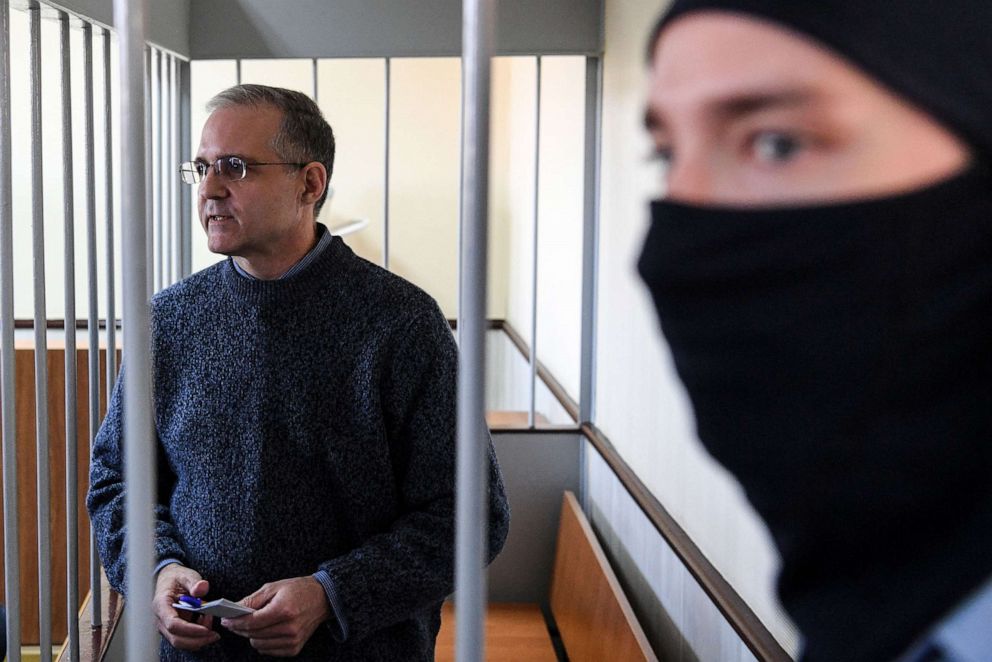
Paul Whelan, a former US Marine accused of spying and arrested in Russia stands inside a defendants’ cage during a hearing at a court in Moscow, Aug. 23, 2019.
Kirill Kudryavtsev/AFP via Getty Images
Griner, who pleaded guilty to drug charges in early July — though she said she had only inadvertently brought illegal hashish oil into Russia — has been detained since Feb. 17. She was sentenced to nine years behind bars but is currently appealing the ruling.
The Phoenix Mercury center and Olympic gold medalist’s wife, Cherelle Griner, said in July that she would “not be quiet anymore” and publicly urged the government to do everything in its power to help Griner.
Whelan has been detained in Russia since December 2018 on espionage charges that U.S. officials have called “trumped up.” His brother told ABC News the Whelan family is supportive of Richardson’s involvement in the case.
ABC News’ Patrick Reevell and Cindy Smith contributed to this report.

